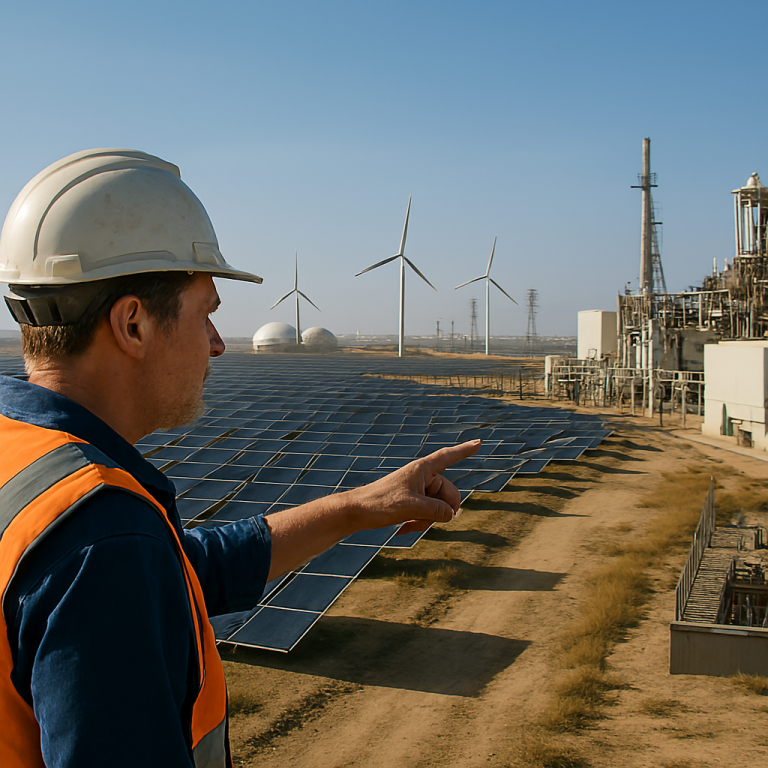Do you ever stop to think about the environment as a delicate ecosystem, like a web of interconnected threads? The truth is, environmental conservation is crucial for the well-being of our planet and everything that calls it home, including you. By conserving the environment, you contribute to the protection of natural resources, safeguard animal habitats, and combat climate change. It’s not just about the animals; it’s about creating a healthier world for yourself too. Together, through collaboration and individual actions, we can make a significant impact on preserving biodiversity, ensuring resources for future generations, and creating a sustainable future. Join us as we explore the facts and reasons why it is so important to conserve the environment.
Environmental Conservation Protects Natural Resources
Conserving the environment is vital as it ensures the protection and preservation of Earth’s limited natural resources. The importance of preserving natural resources cannot be overstated. By practicing environmental conservation, we are actively protecting wildlife and biodiversity. This is crucial because the loss of species and ecosystems can have far-reaching consequences for the health of our planet. Sustainable development initiatives play a significant role in balancing human needs with environmental preservation. These initiatives aim to meet the present needs of society without compromising the ability of future generations to meet their own needs.
Environmental awareness and education are essential in promoting conservation efforts. By increasing our understanding of the impact of our actions on the environment, we can make informed choices and take individual responsibility for our conservation efforts. Each person’s actions, no matter how small, can contribute to the overall goal of preserving natural resources.
Conservation Safeguards Animals and Wildlife
Your responsibility in environmental conservation includes safeguarding animals and wildlife. Conservation efforts for wildlife are crucial in preventing habitat destruction, preserving biodiversity, and protecting endangered species. Forest conservation plays a significant role in providing a habitat for various wildlife species. By preserving forests, we ensure that these animals have a safe and thriving environment to live in. Wildlife preservation is essential for maintaining ecosystem balance and functionality. Each species contributes to the overall health and stability of the ecosystem, and their loss can have cascading effects on other organisms. Conservation efforts focus on implementing measures to protect vulnerable migratory species, such as creating protected areas and establishing corridors for their safe passage. By protecting these species, we not only safeguard their survival but also contribute to the preservation of diverse ecosystems. It is through these conservation efforts that we can ensure the long-term survival of animals and wildlife, promoting a healthy and sustainable environment for all.
Positive Changes Through Environmental Conservation
How can environmental conservation bring about positive changes in your daily life? Environmental conservation plays a crucial role in promoting sustainable development and ensuring a better future for all. By practicing environmental conservation, you demonstrate consideration for other species and their habitats, fostering a more harmonious coexistence on Earth. It also encourages individual action and compassion, as each person has the power to make a difference through their choices and behaviors. Moreover, environmental conservation promotes accountability and self-awareness, urging individuals to take responsibility for their actions and their impact on the environment. By acting responsibly and compassionately towards the environment, you contribute to positive changes that minimize global problems such as climate change, habitat destruction, and resource depletion. This responsible and compassionate behavior not only benefits the planet, but also enhances the quality of your daily life by creating a healthier, more sustainable environment for yourself and future generations. Therefore, embracing environmental conservation is essential for bringing about positive changes and fostering a more sustainable and compassionate world.
Environmental Conservation Promotes Human Health
Protecting the environment through conservation efforts directly impacts your own health and well-being. Here are four reasons why environmental conservation promotes human health:
- Preventing diseases: Maintaining a healthy environment helps prevent the emergence and spread of diseases. By protecting ecosystems and preserving biodiversity, we reduce the risk of zoonotic diseases, which are transmitted from animals to humans. Additionally, a healthy environment supports clean air and water, crucial for preventing waterborne and respiratory illnesses.
- Preserving biodiversity: Biodiversity is essential for the balance of ecosystems and the survival of species, including humans. It provides us with natural resources, such as food, medicine, and materials. Preserving biodiversity contributes to the availability of lifesaving drugs and ensures a sustainable source of food and water.
- Supporting sustainable development: Environmental conservation and sustainable development go hand in hand. By protecting ecosystems and natural resources, we can support economic growth without compromising the health of the planet and its inhabitants. Sustainable development promotes public health by creating healthier living conditions and reducing poverty.
- Protecting ecosystems: Ecosystems provide essential services that directly impact human health, such as regulating climate, purifying water, and preventing natural disasters. Conserving ecosystems ensures the availability of these services and protects communities from the adverse effects of climate change and natural disasters.
Collaboration and Support for Conservation Efforts
Collaboration and support from individuals and organizations are vital for the success of conservation efforts. Environmental organizations, corporate partnerships, and community involvement provide valuable collaboration opportunities to protect and preserve the environment. These collaborations allow for the pooling of resources, knowledge, and expertise, leading to more effective conservation initiatives.
Environmental organizations play a crucial role in conservation efforts. They conduct research, develop conservation strategies, and advocate for policies that promote environmental protection. By collaborating with these organizations, individuals and businesses can contribute to their conservation projects and support their initiatives through fundraising initiatives.
Corporate partnerships also play a significant role in conservation efforts. Many companies recognize the importance of environmental conservation and are actively seeking ways to reduce their ecological footprint. By partnering with environmental organizations, corporations can contribute financially, offer resources, and implement sustainable practices in their operations.
Community involvement is essential for successful conservation efforts. Engaging local communities in conservation initiatives fosters a sense of ownership and responsibility for the environment. This involvement can include volunteering for conservation projects, participating in awareness campaigns, and supporting local conservation organizations.
Fundraising initiatives are another crucial aspect of collaboration for conservation efforts. Raising funds allows organizations to implement and sustain their conservation projects. Individuals and businesses can contribute through donations, organizing fundraising events, or participating in crowdfunding campaigns.
Conservation for Wildlife and Ecosystems
By promoting biodiversity and preserving natural habitats, conservation efforts safeguard the well-being of wildlife and ecosystems. This is crucial for the preservation of Earth’s delicate balance and the sustainability of our planet. Here are four key reasons why conservation for wildlife and ecosystems is important:
- Preserving biodiversity: Conservation ensures the protection of a wide range of species, from the smallest microorganisms to the largest mammals. By maintaining diverse ecosystems, we support the interdependence of species and the stability of natural processes.
- Protecting endangered species: Conservation efforts focus on preventing the extinction of endangered species. By providing suitable habitats and implementing conservation measures, we give these species a fighting chance for survival.
- Ecosystem restoration: Conservation involves restoring degraded habitats and ecosystems. Through practices such as reforestation and habitat rehabilitation, we can reverse the damage caused by human activities and create healthier environments for wildlife.
- Sustainable wildlife management: Conservation aims to establish sustainable practices for the management of wildlife populations. By carefully monitoring and regulating hunting, fishing, and other activities, we can ensure the long-term viability of species and maintain ecological balance.
Conservation for the Earth and Climate
Conserving the environment is crucial for ensuring the future of our planet and mitigating the impacts of climate change. Preserving ecosystems, protecting biodiversity, and implementing sustainable land management practices are essential components of conservation for the Earth and climate.
Preserving ecosystems is vital because they provide numerous benefits to the planet. Ecosystems support biodiversity, regulate water cycles, and contribute to climate stability. They also provide essential services such as pollination, soil fertility, and carbon sequestration.
Conservation plays a significant role in climate change mitigation. Nature-based solutions, such as reforestation and wetland restoration, can help capture and store carbon dioxide from the atmosphere. By protecting and restoring natural habitats, we can reduce greenhouse gas emissions and slow down global warming.
Protecting biodiversity is crucial for the resilience of ecosystems and the survival of many species. Biodiversity ensures the stability and productivity of ecosystems, which in turn benefits human well-being. Conservation efforts focus on preserving habitats, preventing species extinction, and promoting sustainable use of natural resources.
Sustainable land management practices also contribute to conservation for the Earth and climate. By adopting sustainable agricultural practices, we can reduce soil erosion, water pollution, and deforestation. Sustainable land management supports food security, prevents land degradation, and helps maintain ecosystem services.
Conservation for Human Health and Well-Being
Preserving the environment is crucial for safeguarding human health and well-being. Conserving the environment has several important implications for our health and the well-being of our communities. Consider the following:
- Preventing diseases: Environmental conservation plays a crucial role in preventing the emergence of new diseases. By preserving natural habitats and ecosystems, we reduce the risk of infectious diseases spreading from animals to humans.
- Zoonotic disease prevention: Zoonotic diseases, which originate in animals, can have devastating effects on human health. Environmental conservation helps to create a barrier against zoonotic diseases by minimizing human-animal interactions and preserving the natural balance of ecosystems.
- Lifesaving drugs preservation: Many lifesaving drugs are derived from plants and animals found in natural environments. Conserving these habitats ensures the preservation of these valuable resources, allowing for the continued development of life-saving medications.
- Healthy environment importance: A healthy environment is essential for human well-being. Clean air, clean water, and a thriving ecosystem contribute to our physical and mental health. Environmental conservation helps maintain these essential elements of a healthy environment.
- Food and water resource protection: Environmental conservation is vital for protecting our food and water resources. By preserving natural habitats and practicing sustainable farming methods, we can ensure the availability of safe and nutritious food and clean water for present and future generations.
Importance of Conservation for the Environment
To ensure the health and survival of our planet, it is crucial that we prioritize the protection and sustainable management of our environment. Conservation practices play a vital role in preserving the Earth’s ecosystems and biodiversity. Through sustainable development, we can strike a balance between meeting our present needs and preserving resources for future generations. Ecosystem preservation is essential as it maintains the delicate interactions between species and ensures the stability of our natural systems.
Environmental responsibility lies in our hands, and conservation awareness is key to fostering a sense of stewardship towards our planet. By understanding the importance of conservation, we can make informed choices that minimize our impact on the environment. It is through collective efforts that we can address issues such as habitat destruction, deforestation, and the wasteful use of resources.
Conservation for the environment is not a mere luxury but a necessity. Damage to habitats can have far-reaching consequences, including the disruption of ecosystems and the exacerbation of climate change. By protecting and restoring habitats, we contribute to the preservation of biodiversity and the mitigation of environmental damage.
Incorporating conservation practices into our daily lives is essential. This includes reducing our consumption, conserving energy and water, supporting sustainable businesses and products, and promoting reforestation efforts. By taking individual actions, we can collectively make a significant impact on the health and well-being of our planet. Let us embrace our role as responsible custodians of the environment and strive to create a sustainable future for all.
Environmental Impacts of Habitat Damage
- When habitats are damaged, it disrupts ecosystems and contributes to climate change. This has several significant environmental impacts that should not be overlooked. Here are four key effects of habitat damage:
- Mitigating deforestation: Deforestation not only leads to the loss of trees, but also disrupts entire ecosystems. Trees play a crucial role in mitigating climate change by absorbing carbon dioxide from the atmosphere. Protecting and restoring forests is essential for maintaining a healthy planet.
- Ecosystem restoration: Damage to habitats can result in the loss of biodiversity and the disruption of delicate ecosystems. Implementing ecosystem restoration projects can help revive these damaged habitats, allowing species to thrive and promoting overall ecosystem health.
- Impact on the food chain: When habitats are damaged, it can lead to the extinction or endangerment of certain species. This has a cascading effect on the food chain, as the loss of one species can disrupt the balance and stability of an entire ecosystem.
- Protecting pollinators: Pollinators, such as bees, butterflies, and birds, play a crucial role in plant reproduction and the maintenance of ecosystems. Habitat damage can harm these important pollinators, jeopardizing the pollination process and the health of plant populations.


